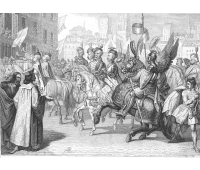
The Henrician Articles were an act of the Electoral Sejm adopted on May 12, 1573 during the interregnum after the death of King Sigismund August. In the political debate that took place during the interregnum, it was considered that the assumption of foreign origin by the monarch, which was expected during the forthcoming election, should be preceded by an improvement in the political system of the Republic of Poland, the results of which would then be presented to the electorate for
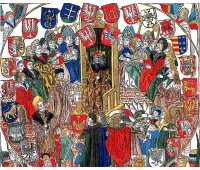
The senate was established in 15th century, during forming of the Chamber of Deputies in the sejm as the representation of the nobles. In fact, senate was a transformed royal council, which constituted of high officials, appointed by the king. The organisation of the senate began to stabilize itself in the beginning of the 16th century. The make-up of the senate was established and closed by the king Sigismund I the Old. It constituted of archbishops, bishops, voivodes, castellans,
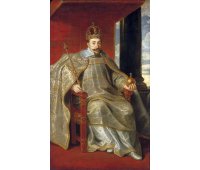
The king of the Commonwealth was the holder of the supreme power. He was recognised, beside the senate and the Chamber of Deputies, as a separate sejming estate, being an integral element of the sejm. However, at first, when in 15th century the king’s power definitely got stronger and consolidated, most of the country’s sovereignty was in his hands. The king exploited the development of the estate representation institution, that is sejms and sejmiks, slowly forming in 15th
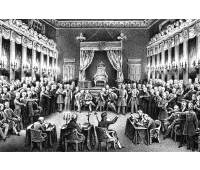
The Chamber of Deputies was a part of the former Polish Sejm, being an embodiment of one of the sejming estates. The origin of its isolation as a separate part of the sejm may be found in the sejms convened by the king Casimir IV Jagiellon. The earliest accounts of creating a separate chamber date to year 1468, when the king Casimir IV Jagiellon ordered the provincial sejmiks (of Greater Poland in Koło and of Lesser Poland in Wiślica) to appoint two deputies each and later all the county
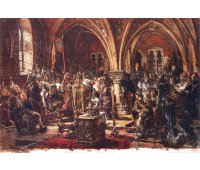
It was convened in 1468 by king Kazimierz Jagiellonczyk (Casimir Jagiellon) in Piotrków. It was preceded by the meetings of King Casimir with the dignitaries and nobility in the provincial assemblies of Małopolska on 25-30 June 1468 in Wiślica and of Wielkopolska in Koło on 13 July 1468. The king's actions were motivated by the need to pay the soldiers taking part in the war with the Teutonic Knights, which ended in 1466. Both in the Małopolska provincial assembly in Wiślica
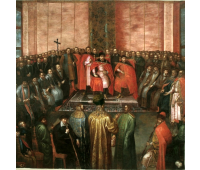
Convening of extraordinary assemblies in the Polish Commonwealth was provided for in the Henrician Articles of 1573-1576. In case of an emergency, the king was authorized to convene an extraordinary session. An extraordinary Sejm was convened above and beyond the usual rule of mandatory convocation of an ordinary Sejm, which was to be held every two years at the latest. An extraordinary Sejm, however, was not like any other Sejm. It differed from the ordinary sessions, such as the
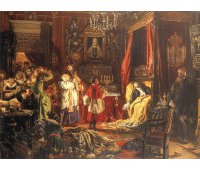
In the Polish Commonwealth, a person acting for the king during an interregnum. For the first time, an interrex was appointed after the death of King Sigismund August in 1572. In the face of perils resulting from absence of a king as a head of state, in particular those with regard to maintaining integrity of the state, a conviction firmed up of a necessity to establish a system of supreme and central state institutions which would be a permanent mechanism in force in the Polish Commonwealth
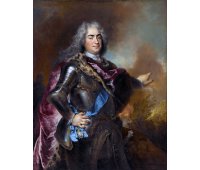
The limited Sejms were those sessions which were postponed to a later date, leaving in force the resolutions adopted before the postponement and maintaining the validity of the mandates of the members of the chamber of deputies for the period until the end of the suspended term. Limiting the sessions of the Sejm in this way entered into parliamentary practice during the reign of King August II the Strong, i.e. 1697-1706 and 1709-1733.The purpose of limiting the duration of the Sejm sessions
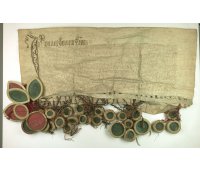
Provincial assemblies, sometimes called general assemblies (conventiones generales), were established at the turn of the 14th and 15th centuries. They developed during the reign of King Władysław Jagiełło, especially in the 1420s. The king, who finally got two sons at a late age, began to strive to secure their rights to the throne by seeking support of territorial assemblies, land assemblies, but also of the entire provincial assemblies, independently of the general Sejms. They were
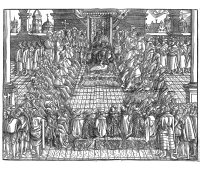
The name of an ordinary Sejm is derived from the Latin word pacificatio, i.e. calming down, as is was convened to bring about reconciliation and assuage the mood in the country. A pacification Sejm would be convened to put an end to fights and internal tensions, which were often caused by split elections. The first pacification Sejm was convened in 1589 to assuage the moods and remove the divisions that occurred as a result of the election of 1587, when Sigismund III was elected king. This
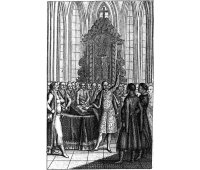
The coronation Sejm was the Sejm convened in the Polish Commonwealth during the session of the election Sejm after the election of the monarch. It was preceded by a royal coronation by the primate, or in his absence by another bishop, during which the new king pledged a general confirmation of rights (Confirmatio generalis iurium). The first such confirmation was given in 1438 by king Władysław III, who was obliged to do so during his election in 1434. The king would separately certify his
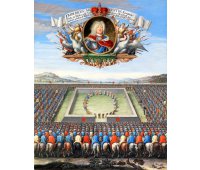
The Election Sejm was another type of the Sejm which was held during an interregnum. It was originally convened to elect the monarch, which was its primary task. The basis for establishment of election Sejms was the adoption of the election system of monarchs in Poland in the 15th century. King Władysław Jagiełło acknowledged the right to elect the ruler in the privileges granted in 1425-1433 in an attempt to secure the throne for his sons Władysław (b. 1424) and Kazimierz (b. 1427).
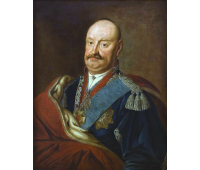
The name of two Sejm sessions in the years 1767-1768 and 1773-1775, which were convened in special political circumstances as in both cases the convening, deputies’ composition, and course of the sessions were subject to a strong Russian pressure having the characteristics of a foreign intervention. During the first Sejm in 1767-1768, when Russia sought to gain dominance over the course of political life of Poland, equal rights for dissidents became a pretence. To implement these, it
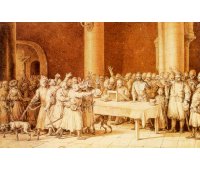
An extraordinary Sejm convened during a wartime mass mobilisation, with the entire nobility assembled in person under their land banners in a war camp (in loco campestri). The nobility who personally participated in the decisions usually gained majority in the camp assemblies. This represented a departure from the principle of representation. A camp Sejm certainly took place in Czerwińsk in July 1422, during the Polish army expedition against the Teutonic Order, when King Władysław
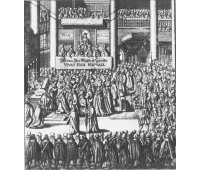
A Convocation (see Latin con "co-" and vocatio "summoning") was the first Sejm in the Polish Commonwealth to be held at the beginning of an interregnum. It was preceded by pre-selection assemblies convened by the primate, who, should an interregnum occur, assumed the function of an interrex, i.e. a head of state. In this sense, the Convocation Sejm, also convened by the primate, was the first stage in the election of a new ruler. As the first Sejm in an interregnum, a
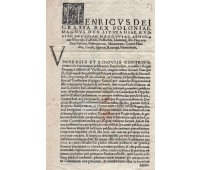
The viritim election was a political and legal institution which established the supreme royal authority through personal participation of representatives of the nobility in the election.
The principle of election has been known and applied many times in the past, still being the most common way of establishing the monarchy in the Piast and Jagiellonian times. It came to use in the case of king Władysław Jagiełło, and was then consistently repeated in the Jagiellonian house for the

